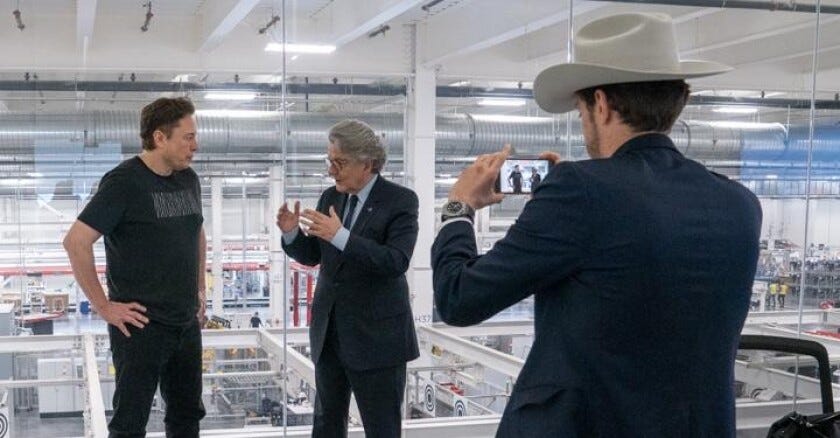Elon Musk, Twitter, and the European Union
The richest man on the planet has bought the most sought-for platform for politicians. What does it mean for Europe? Which regulation does the EU have in place?

Bruce Wayne’s real-life incarnation made the headlines last week for his concluded purchase of Twitter, the preferred social network of journalists and politicians.
A few hours after the decision was made official, a few announcements came out: US President Donal Trump might make his grand comeback to the platform, which will become a beacon of “free speech”. Musk fired the whole management board, appointing himself as CEO.
In reaction, European Commissioner for Single Market (in part in charge of Europe’s digital agenda) Thierry Breton recalled Elon Musk that Twitter still needs to abide by EU rules. But which are they? and what will this purchase change for European democracy?
The European Digital Services Act
When we talk about EU digital regulations, we must turn to the recent DSA (the Digital Services Act), “the world’s toughest online moderation rules,” according to Politico.
The DSA was published last week in the Official Journal of the Union and will gradually unfold in the coming months. In 2024, giant tech platforms (the famous GAFAM and the likes, Twitter included) will have to comply with a more stringent set of rules. Its motto will be “what is illegal offline must be made illegal online.”
In particular, the DSA restricts advertising based on sensitive and personal data such as religion and sexual orientation. It also gives national authorities the ability to order platforms to take down illegal content and allows users to flag suspect content for review.
Politico reported that Twitter must, under DSA requirements, “disclose the number of its users” by February 2023, and abide by the other rules by “summer 2023 or February 2024.”

Europe vs Musk
Although Elon Musk claimed that the platform would respect EU rules, the announcements from the self-proclaimed “free-speech absolutist” raise questions in the Old Continent.
Could Donal Trump come back to Twitter under Musk’s rule? That’s at least one of the ideas explored by the platform’s new CEO, who would like to improve “freedom of speech” on the social media.
In a letter published by Defend Democracy, a NGO promoting “resilience against hybrid threats to democracy,” 12 NGOs voiced their concerns over Elon Musk purchase of Twitter and asked “the European institutions to launch an urgent security and regulatory review of the take-over.”
When an individual has more power than Europe
The main critics addressed at Elon Musk are about the spread of fake news. Yet, while the DSA regulates “illicit content,” it does not prevent “detrimental content” such as fake news.
Furthermore, Elon Musk has been critical of the decision by European regulators to suspend the activities of Kremlin-backed media outlets, such as RT or Sputnik News. Could activists close to Vladimir Putin come back to Twitter to destabilise Europe?
Thus, is Europe equipped to deal with Elon Musk and his trolling abilities? The richest man in the world has shown multiple times that he mostly does whatever he feels like (his latest addition was to bring a sink to Twitter’s headquarters), and with no regard for exactitude.
In an attempt to reassure Twitter’s advertisers, Musk claimed that the platform will not become a “free-for-all hellscape” and that Twitter should be “warm and welcoming to all.” He also reiterated his message of May, when he said that European rules were “exactly aligned with [his] thinking,” and reached out to Breton last week to assure him that he will comply with the DSA, Politico reported.
And now: your turn: How will Elon Musk's take-over change your usage of Twitter?






